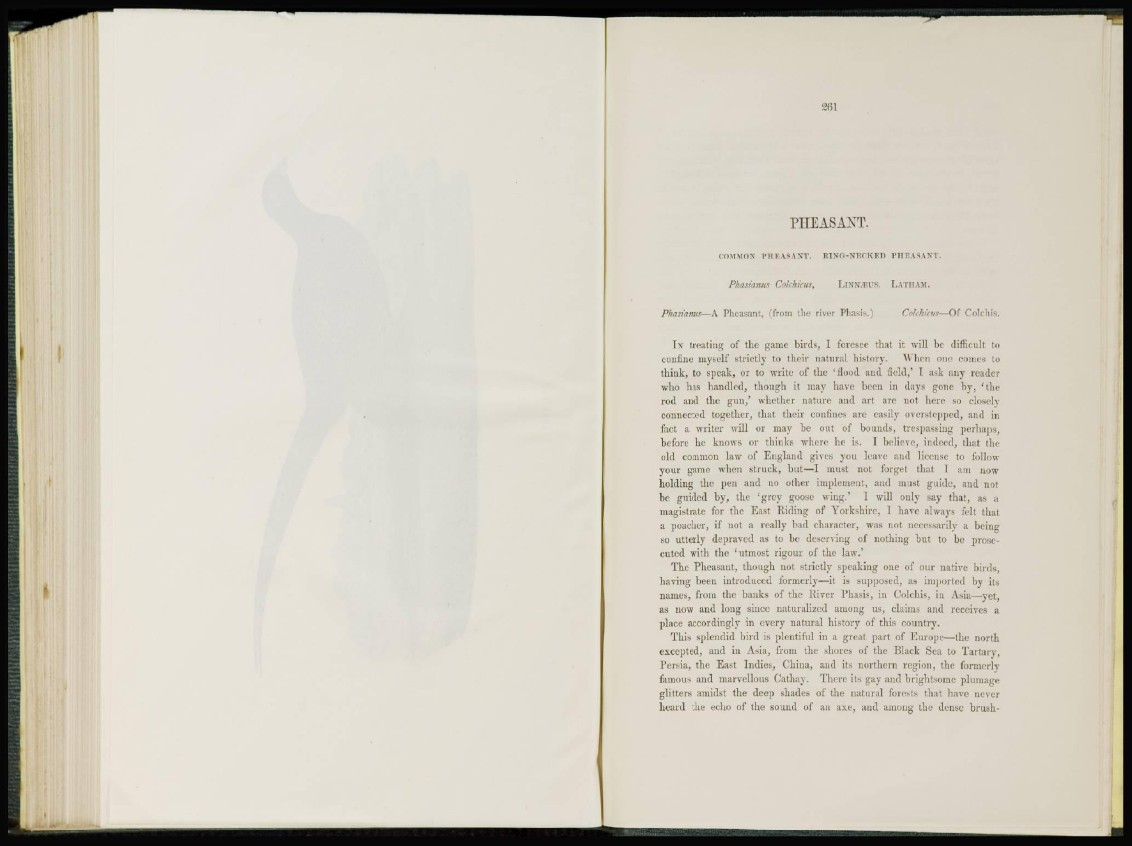
PHEASANT.
COMMON l'lllv\S \ NT. RING-NEOKKO I'll K \S \ \ I .
Phasianus Coichicus, LiNNJBUS. LATHAM.
Pkasianus—A Pheasant, (from the river Phasis.) Coichicus—Of Colchis.
I N treating of the game birds, I foresee that it will be difficult to
confine myself strictly to their natural history. When one comes to
think, to speak, or to write of the 'flood and field,' I ask any reader
who has handled, though it may have been in days gone by, ' t h e
rod and the gun,' whether nature and art are not here so closely
connected together, that their confines are easily overstepped, and in
fact a writer will or may be out of bounds, trespassing perhaps,
before he knows or thinks where he is. I believe, indeed, that the
old common law of England gives you leave and license to follow
your game when struck, but—I must not forget that I am now
holding the pen and no other implement, and must guide, and not
be guided by, the ' g r e y goose wing.' I will only say that, as a
magistrate for the East Riding of Yorkshire, I have always felt that
a poacher, if not a really bad character, was not necessarily a being
so utterly depraved as to be deserving of nothing but to be prosecuted
with the 'utmost rigour of the law.'
The Pheasant, though not strictly speaking one of our native birds,
having been introduced formerly—it is supposed, as imported by its
names, from the banks of the River Phasis, in Colchis, in Asia—yet,
as now and long since naturalized among us, claims and receives a
place accordingly in every natural history of this country.
This splendid bird is plentiful in a great part of Europe—the north
excepted, and in Asia, from the shores of the Black Sea to Tartary,
Persia, the East Indies, China, and its northern region, the formerly
famous and marvellous Cathay. There its gay and brightsomc plumage
glitters amidst the deep shades of the natural forests that have never
heard the echo of the sound of an axe, and among the dense brush